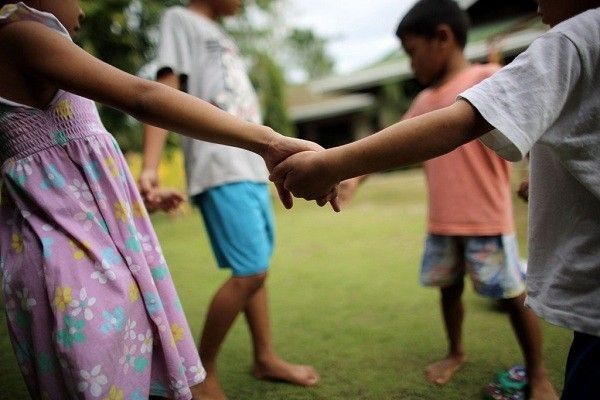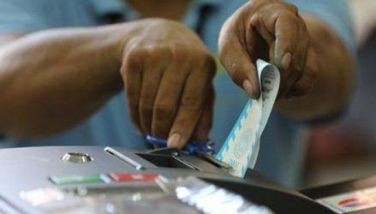Law raising age of sexual consent seen to protect Filipino teens, sends chilling effect to abusers — experts

MANILA, Philippines (Updated 12:26 p.m.) — A newly-signed law which raises the age of sexual consent will protect Filipino teens from sexual violence while sending out a chilling effect to adults who want to take advantage of minors, according to experts.
While child rights advocates and the Commission on Population and Development (Popcom) said the law enhances the standards of protection for adolescents, they believe it must be implemented properly on the ground by local government units and other institutions.
In March, President Rodrigo Duterte signed Republic Act (RA) 11648 which amends three laws, namely, the Revised Penal Code, the Anti-Rape Law and the Special Protection of Children Against Abuse, Exploitation and Discrimination Act.
Notably, the RA said those who engage in sexual activities with children below 16 are liable for committing statutory rape. Previous laws placed the age of offended parties at below 12 years old.
In effect, the new law increases the age of sexual consent to those 16 and above.
'Chilling effect'
"It will have a protective effect for children below 16 who may be exploited by older persons, and there is what you might say a chilling effect on adults who try to have relations with a girl below 16," Popcom Executive Director Dr. Juan Antonio Perez III told Philstar.com.
He added that the law may also address the thousands of new teenage pregnancies recorded in the Philippines every year, which the Popcom earlier tagged as a national and social emergency.
Manila-based non-government organization Child Protection Network (CPN) reported that sexually-abused teenagers aged 13 to 15 years old were typically seen in women and child protection units across the country in 2017.
From January to end-March this year, reported cases of sexual abuse or assault against minors have already hit 1,407, accounting for majority or 73% of the cases of violence against children, based on latest statistics from CPN.
The RA 11648, which is now in place, increases the standard of protection for children, Atty. Maria Margarita Ardivilla, a child protection specialist from Unicef (United Nations Children's Fund) Philippines said.
"Now, it is not allowed to have sexual congress with a very young child," Ardivilla told Philstar.
She explained that the Philippines was one of the countries which had one of the lowest ages of sexual consent before, higher only to the African country of Niger, prompting the UN Committee on the Rights of the Child to urge the Philippine government to re-evaluate this.
"The Philippine government... can go back to the UN Committee and say that they have already complied to this gap in our legal framework and have afforded higher protections for our children," Ardivilla said. For her, this law has been a long time coming, fulfilling the country's commitment as a signatory of the UN Convention on the Rights of the Child, which requires states to protect children from all types of sexual exploitation and abuse.
'Romeo and Juliet clause'
The RA provides an exception which allows minors aged 14 and 15 to engage in sex only with others who are older than them by not more than three years.
The clause reads:
“Provided that there shall be no criminal liability on the part of a person having carnal knowledge of another person under sixteen (16) years of age when the age difference between parties is not more than three (3) years, and the sexual act in question is proven to be consensual, non-abusive and non-exploitative."
However, this will not apply to minors below 13.
This "Romeo and Juliet clause", as Popcom's Perez says, recognizes that eligible adolescents of the same age group may engage in sexual relations.
According to him, the provision was added to ensure that there existed no power relationship which would take place between the parties, the presence of which can put minors at a disadvantage.
Unicef's Ardivilla noted that such a clause is not new to the Philippines as various states in Australia and the United States, among others, have similar provisions.
Adolescent sexual and reproductive health and rights advocate Lady Lisondra believes the RA 11648 recognizes that "teens are sexual beings."
"If you want the child to enjoy and be able to express their sexuality... then you would want to, of course, avoid exploitation. You want to protect them from abuse and want to make sure that there are actually processes for legal redress," she told Philstar.com.
Lawmakers express support
Three senators earlier threw their support for the RA 11648, echoing the sentiments of child rights advocates.
In a statement on March 7, Sen. Risa Hontiveros, who chairs her chamber's women, children, family relations and gender equality committee, said the legislation is a way of asking for forgiveness to all the affected children and women who did not receive protection from institutions.
"It is depressing to hear the stories of advocates who have children aged 13 to 14 years old who need to prove that they did not consent to a sexual act. Others were even asked if they enjoyed the act. This has no place in our society," Hontiveros said.
For her, it has taken decades before the act was signed into law.
Senate Majority Leader Juan Miguel Zubiri, who authored and co-sponsored the law, previously said this has been long-awaited by many families and child rights advocates.
"At thirteen or fourteen, our kids cannot make informed decisions about sex yet, especially sex with adults, so this is a really important law that will protect our kids from malicious individuals," Zubiri said in a statement on March 7.
Meanwhile, Sen. Richard Gordon described the law's passage as a "big step in human rights."
"We are thankful for the passage of this bill, which ends the stigma of the Philippines having the lowest age of sexual consent in Asia. It fortifies protection of children's rights, and criminalizes perverted minds," Gordon said in a statement.
Aside from raising the age of sexual consent, the RA 11648 also expands the definition of rape, where the victim can be any person. Before, the crime was defined as an act done by a man against a woman.
Statistics from the Department of Social Welfare and Development show that from 2015 to 2017, many victims of rape and child incest were aged 14 to below 18- which was above the minimum age set by the Anti-Rape Law of 1997.
Law might overstep children's sexual rights
While the law is expected to protect more children, it may infringe on the rights of adolescents in giving sexual consent to those who are older than them by more than three years, according to the Executive Director of the University of the Philippines Center for Women's and Gender Studies Nathalie Africa-Verceles.
"I'm happy that we have this law that protects minors but at the same time, I'm also concerned about how it might be overstepping on adolescent sexual rights of those who are able to give free and true consent to sexual acts," she told Philstar.com.
"We're assuming that nobody under 16 is able to [give consent]," Verceles said.
She said she recognizes the law's intention, but she noted that it treats young people under 16 in the same way.
"In our society, we always look at young people as all the same- that they're in need of protection, that they're not mature enough. We generalize...[But] they're different from each other. There are young people who are more mature than older people, depending on their life experiences," she said.
Unicef's Ardivilla explained that the Senate's original version of the law set the age of consent at 18, but this was eventually lowered to 16.
In this way, the law considers children's sexual rights, she said.
Implementation on the ground
Emma Salmani, the Advocacy Manager of non-governmental organization Save the Children Philippines, says that a "massive" information awareness campaign of the law should be rolled out so that local government units and those working in child protection will know its provisions.
She told Philstar.com that it is imperative to have competent people who will provide services to children who report sexual violations.
For the law's effective implementation, Ardivilla said it is important to also equip frontline protection workers- police officers, local social workers, child psychologists and pediatricians- with the necessary skills to respond to reports of sexual abuse cases committed against children.
Responders must also know how to properly deal with sexually-abused children, as they must adopt a response which is both "survivor-centered and trauma-informed", according to Verceles.
"We must remember that these are people who have suffered abuse so they will have trauma. They are dealing with trauma. So we don't want to add to that trauma by disempowering them," she said.
Under RA 11648, public and private institutions engaged in the learning and care of children are required to include in their lesson plans sessions on how to identify, respond and report rape and other sexual offenses.
The Department of Education (DepEd) is also tasked to add in its curriculum "age-appropriate" subjects about children's protection and rights related to the law.
A few days ago, the Education Department announced that it has recently released a four-day online training course on adolescent health for its personnel. DepEd said it rolled out the program in partnership with the Department of Health and the World Health Organization's Philippine Country office.
DepEd explained that the adolescent reproductive health specialists will first attend the program until April. Schools will then be able to access the program until December this year. The online course was released just as the world celebrated the International Adolescent Health Week from March 20 to 26.
Sexual abuse reporting system in the works
Popcom is currently working with other agencies to roll out the country's first-ever reporting system which links government units as well as hospitals in gathering information related to teenage pregnancies involving minors below 16.
"[Under the system]... any incident of pregnancy below 16 would be reported to the police and investigation would be made, because it's a prima facie evidence that a rape has been committed under this law," said Popcom's Perez.
Perez explained that cases of rape committed against children under the age of consent will now be one of the "reportable issues" in this proposed reporting system.
More details about the new reporting system will be released in the form of a circular, hopefully in a few months' time, he said.
- Latest
- Trending
































